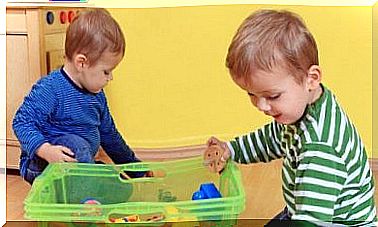How To Prevent Fear Of Failure In Young People

If you remember your adolescence, you will realize the enormous importance that you attached to matters that now seem irrelevant to you. You will remember how worried you were about failing an exam, being rejected by the person you liked, or not fitting in with a group of friends.
As we mature, we learn to relativize the difficulties that arise, but adolescents experience each situation with great intensity. Therefore, the fear of failure can generate great suffering.
At the beginning of puberty, around the age of twelve, developmental fears related to school success and social life begin to appear. It is normal that young people are now more concerned about these types of issues. However, it is important that they have adequate coping tools that allow them to face that fear. And this is where the work of parents can be decisive.

Fear of failure in young people
Adolescence is a stage marked by the search and construction of one’s own identity. Young people begin to detach themselves from the family and focus their attention on the image they project towards their peers, who now become the center of their world. For this reason, aspects such as physical image, popularity or academic and sports success occupy a large part of the minds of minors at this age.
It is in this context when the fear of failure can play against them and can lead them not only to suffer on a subjective level, but also to lose or reject good opportunities.
This fear manifests itself in the form of perfectionism and excessive self-demand. Adolescents who suffer from it do not allow themselves to fail and punish themselves harshly if they do. Making a mistake on a school assignment or in a conversation with their friends can be upsetting in a big way.
This fear of failure leads them not to get involved in activities in which they are not sure of succeeding. They do not take risks because they perceive the error as something catastrophic.
Thus, they can avoid taking classes in something they like just for fear of not doing it well or they can decline an outing or trip with classmates to avoid doing something embarrassing or being rejected. In short, there are many experiences that can be lost due to this fear.
How to prevent fear of failure in adolescents?
All the attitudes we maintain are determined by our thoughts. And, in this case, the fear of failure arises from the idea that young people have of error and success. So the best we can do is help them make their beliefs as positive and accurate as possible. To do this, we can resort to the following strategies:
- Set an example. Children clearly learn by imitation by observing adults. But adolescents, although they may not seem like it, are still influenced by what they observe in their parents. Thus, check your attitude towards your own mistakes. Do you accept them, extract a learning and try again? Or, on the contrary, do you punish yourself, blame yourself and feel overwhelmed by the failure?
- Avoid being overly demanding with your child. It’s okay to instill responsibility and perseverance, but try to focus more on the process than the result. That is, take their effort into account and value it regardless of whether they succeed or fail in the task.
- Explain that making mistakes is part of life and essential to learning. That all humans are imperfect and we are constantly growing from our failures. In addition, it tries to remind him that each experience is important in itself for what it teaches us, regardless of whether it is a triumph or a stumbling block.

The error is part of the process
These concepts may be difficult to understand in adolescence, a time marked by intensity and emotional lability. However, based on repetition and example, the message will permeate the young man’s mind.
You don’t fail if you’ve tried hard, you don’t fail if you learn from experience. Fear does not keep you safe, it only prevents you from living. So, give it a try, push yourself, take the risk. If you fall, you can get back up; the error is part of the process.










